Posts Tagged ‘Change that Lasts’
How To Create Change That Lasts
It was a late afternoon in 2017 when we pulled up in front of the giant structure. Eight hours of driving off-road through rock, sand and empty riverbeds had left our team sore and tired, yet the sight alone was enough to shake us from our weariness. In front of us, upon the western shore of Lake Turkana, stood what appeared to be a factory — disheveled, empty and eerily silent.
Following the Sahelian drought of the mid-1980s, massive famine devastated the Turkana region. As is so often the case with large-scale global disasters, the initial compassion surge propelled aid rapidly into the region.
International organizations set up food distributions, medical teams flew in to staff temporary feeding clinics and the Turkana people were once again shown that when things get just bad enough, Western forces will undoubtedly swoop in and try to save the day.
That day, we witnessed one of these examples, as it blocked the blistering rays of afternoon sun from our faces. Twenty years and 150 million U.S. dollars later, a fishery had been completed for the people of Turkana. Its promise? To prevent the people of the region from ever facing starvation again. The reality? A tragic landmark of good intentions gone wrong. The people of Turkana, you see, do not eat fish.
The Elephant in the Room
In his book, When Helping Hurts, Steve Corbett recounts an old African fable:
Elephant and Mouse were best friends. One day Elephant said, “Mouse, let’s have a party!” Animals gathered from far and near. They ate. They drank. They sang. And they danced. And nobody celebrated more and danced harder than Elephant. After the party was over, Elephant exclaimed, “Mouse, did you ever go to a better party? What a blast!” But Mouse did not answer. “Mouse, where are you?” Elephant called. He looked around for his friend, and then shrank back in horror. There at Elephant’s feet lay Mouse. His little body was ground into the dirt. He had been smashed by the big feet of his exuberant friend, Elephant.
Western missions and aid interventions, Corbett writes, are “like dancing with an Elephant. Elephant does not mean to do harm, but he [doesn’t] understand the effects he [is] having on Mouse.”
Sadly, the example of the fishery in Turkana is a tangible manifestation of this fable. It seems that every year we hear horror stories of time and money poured into well-meaning aid interventions that fail to solve the problems they intended to, create damaging patterns of dependency or, worst of all, create bigger problems for their intended beneficiaries.
World Relief Chooses a Different Path
These well-intentioned interventions, while tragic, have taught us important lessons. In fact, they are a central part of how World Relief developed our model of relief and development. We understand that lasting change comes not with quick fixes or band-aid solutions, but through a deep understanding of the unique beliefs, cultural traditions, resources and needs of the communities in which we work.
Such an approach ensures that in places like northern Turkana, we understand that this nomadic, pastoralist community survives on a diet of meat, milk and blood, and that asking them to eat fish — a species they believe are directly related to snakes and associate with danger — is not a quick fix, even in cases of famine.
In seeking to fight against famine in Turkana, we have worked closely with local churches and leaders to brainstorm creative solutions to combat malnutrition.
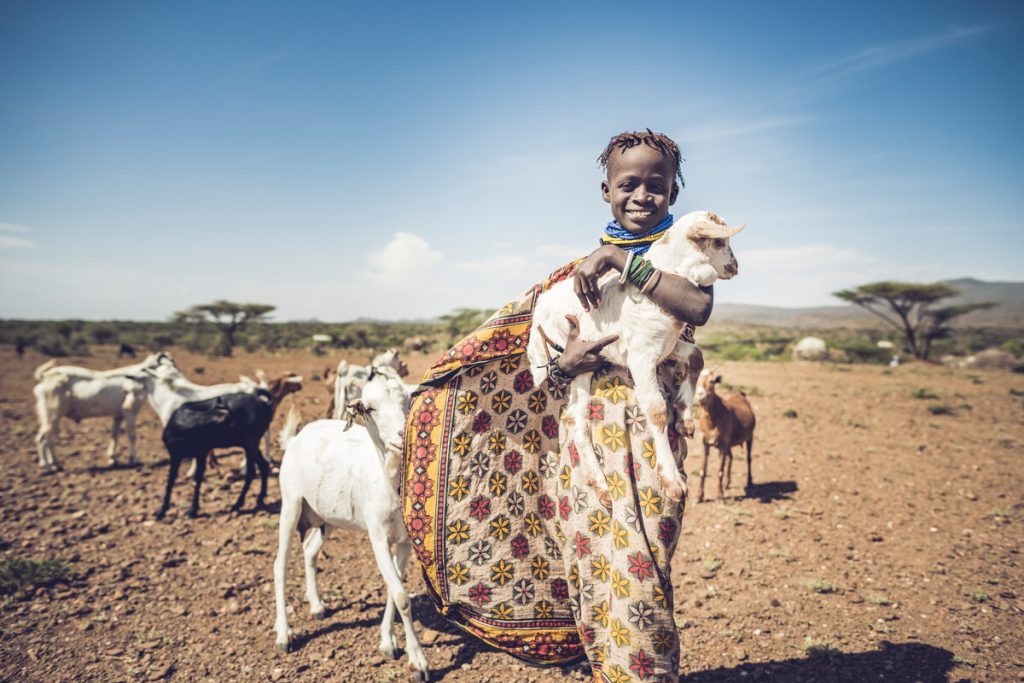
Over the last 12 years, we’ve developed a robust agricultural program in the region that helps expand and diversify the Turkana diet beyond traditional food sources, as well as teach desert farming techniques to help conserve water.
We’ve also bred drought-resistant goats that can survive for longer periods of time without water and launched poultry farming and beekeeping groups that are not only helping the people of Turkana diversify their diets, but also earn income from sustainable food sources. These innovative, culturally-relevant solutions work for the unique challenges and needs of the population and have saved lives in the face of more recent famine and drought.
Grassroots interventions like the ones in Turkana not only honor local knowledge, culture and community resources, but they also pave the way to break the cycle of Western aid that disempowers so many communities in the developing world.
Becoming a Better Partner
In 2010, African economist Dambisa Moyo wrote in her book, Dead Aid, about the broken systems that keep many communities trapped in cycles of dependence on outside aid:
“Africa is addicted to aid. For the past sixty years it has been fed aid. Like any addict it needs and depends on its regular fix, finding it hard, if not impossible, to contemplate existence in an aid-less world. In Africa, the West has found its perfect client to deal to.”
These words, though difficult and perhaps a bit controversial, echo all too true for many development practitioners who frequently hear petitions for food and money when first entering new communities.
It’s also precisely why, when we first enter communities, we begin by bringing local churches together to discuss the ways in which they can work together to solve their own problems. In fact, local pastors, community leaders and a global network of over 95,000 local volunteers, are responsible for the implementation of our programs around the world.
What’s more, 95% of our staff are local to the communities in which they work. Not only do they have an inside voice and understanding that no outside organization can bring, they also bring a passionate commitment for seeing their communities thrive. They will remain in their communities long after we depart — creating, leading and sustaining community efforts toward change.
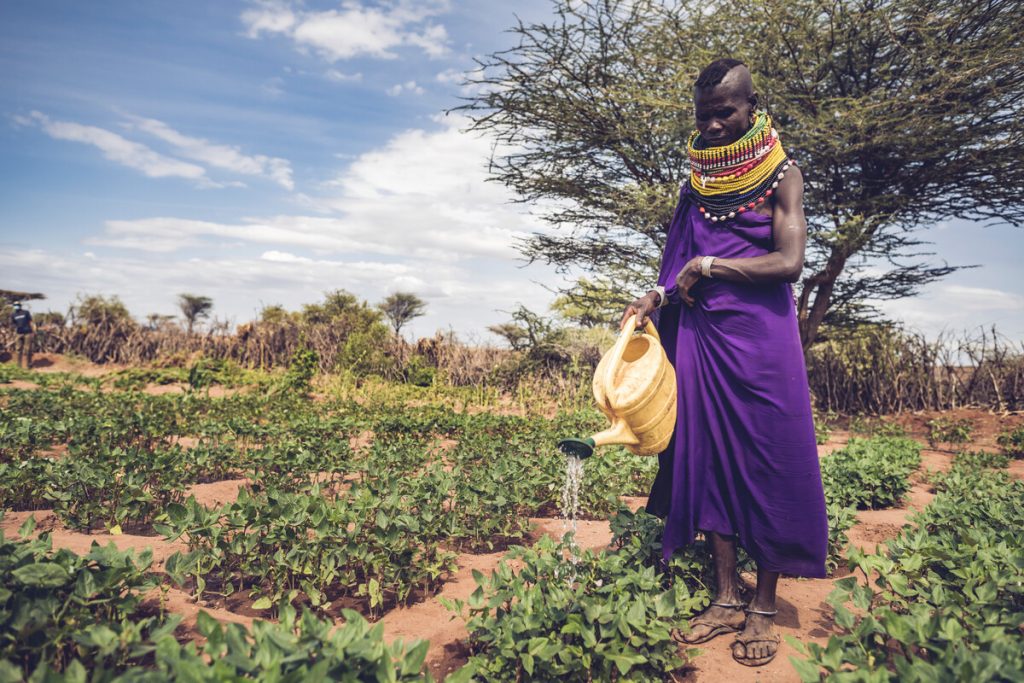
World Relief’s Commitment to Lasting Change
Our world today is obsessed with quick fixes, but at World Relief, we’re fighting for change that lasts. Today, drought is once again threatening severe famine as Turkana. What’s more, the war in Ukraine has caused food prices to spike and rates of malnutrition have increased among children.
And yet, in the imdst of renewed crisis, local churches are rising to the occasion, meeting needs and developing solutions to care for those who need it. Micah Kachoi, World Relief Kenya’s Church Empowerment Zone Coordinator in Turkana said:
“[Churches] are thinking outside the box and asking, ‘What can we do?’
Despite the food shortage and drought, churches are still reaching out to identify the vulnerable people within their communities and mobilizing resources like food, clothing and medical care to support large populations of people who are suffering.”
At World Relief, we refuse to pour time, resources and money into short-term, misdirected solutions in efforts to address complex long-term problems. We believe the biggest problems of our world — disasters, extreme poverty, violence, oppression and mass displacement — have to be tackled at the root, with locally-driven sustainable solutions.
Only then can we ensure that projects like the Turkana fishery never happen again. Yes, this approach takes time. Yes, it is difficult to measure. Yes, in our fast-paced, results-driven culture of immediate gratification, it is hard. But we do it because we know that this approach is transformational — both today and for generations to come.
Thank you for your commitment to creating change that lasts. We could not do this work without you.

Francesca Albano joined World Relief in 2016 and has played a variety of roles with progressively expanding responsibilities. She is a passionate storyteller and cross-cultural communicator, having spent much of her childhood in Kenya and the U.K., before immigrating to the U.S. as a teenager. She holds a B.A. in Anthropology and International Affairs from Colby College and an M.A in Strategic Marketing Communications from Georgetown University, and is also a Storybrand Certified Guide. Today, her passions and expertise converge to help us tell the story of what God is doing through World Relief and the local church all around the world. She is deeply committed to stewarding this story, and the stories of those we serve, with great care and dignity as we also seek to inform, inspire and invite others to come alongside the work of World Relief. She lives close to Boston with her husband, Joe, and son, Teddy.
Share the Gift Pt. 2: Paying it Forward to Empower Women in Turkana
Tomorrow is Giving Tuesday. We invite you to share-the-gift by paying it forward alongside women in Turkana County. Earlier this month you heard about a powerful share-the-gift project in Karebur Village, Turkana.
500 miles north, in Kachoba Village, another share-the-gift project is also taking root. This time, it’s combating malnutrition while empowering women to take on new and important roles within their families and community.
Sharing the Gift in Kachoba
Turkana has predominantly been a patriarchal society. Men are the leaders and the heads of the household and are responsible for making decisions concerning family wealth including slaughtering livestock for food and/or choosing which livestock gets sold or traded.
In this pastoralist community, it is common for the men to leave the home weeks at a time, taking the livestock out to graze where they can find food. In better times, households would have food in the reserve. They would slaughter an animal, cut the meat into thin strips like spaghetti then hang it out in the sun to dry completely. Then, they’d salt the meat and keep it above the fireplace which is always smoking, thus preventing the meat from rotting.
If one household was running low on food, a neighbor might put some of their meat in a pot to make some broth and offer it to others. Again, hands meeting in the pot!
Today, however, climate change and drought is threatening their very way of life. As the livestock is dying off, there is less meat for people to eat, and the remaining livestock struggle to produce milk. Malnutrition is rampant and is affecting children under five at increasingly high rates.
As the primary caregivers of the home and children, women have valuable insights into their family’s needs. And yet, they are not consulted on decisions that affect livelihoods, livestock or daily food intake. In order to combat malnutrition in Kachoba, women need to weigh in.
Care Groups and Creative Problem Solving
Many of the women in Kochoba are involved in World Relief’s Care Group program, where together they began brainstorming new food options to improve household nutrition.
Initially, the mothers proposed milking goats, but concluded they would have a hard time finding adequate feed for their goats. The cyclic drought caused by climate change has made foliage — a goat’s source of food — hard to come by. Underfed goats cannot produce an adequate amount of milk to feed their families.
As the women talked further, they proposed the idea of chickens. Chickens are smaller animals so they are easier to feed. And while men typically control decisions related to livestock, they see chickens as too small for them to worry about.
In 2021, World Relief gifted 50 participating women with four chickens and one cockerel. The women agreed that once their chickens reproduce, they will give away a similar number — three chickens and one cockerel — to another lady in her community.
Because men don’t care for chickens, women are able to have an asset in their hands that they can control, and which can significantly improve nutrition at the household level.
They’re also able to make decisions about whether or not they want to sell one of the cocks or chicks to purchase something they need such as medication for a sick child. Although the project is less than a year old, we are seeing improvements in the way families relate to one another. It has helped women a great deal.
Moving Together Toward Lasting Change
The share-the-gift project is just one part of an expansive community development project in Turkana. The local church networks in the area continue to supervise these projects, ensuring that the seed of love first planted by World Relief will saturate the entire community so that every household has the chance to receive and improve their livestock.
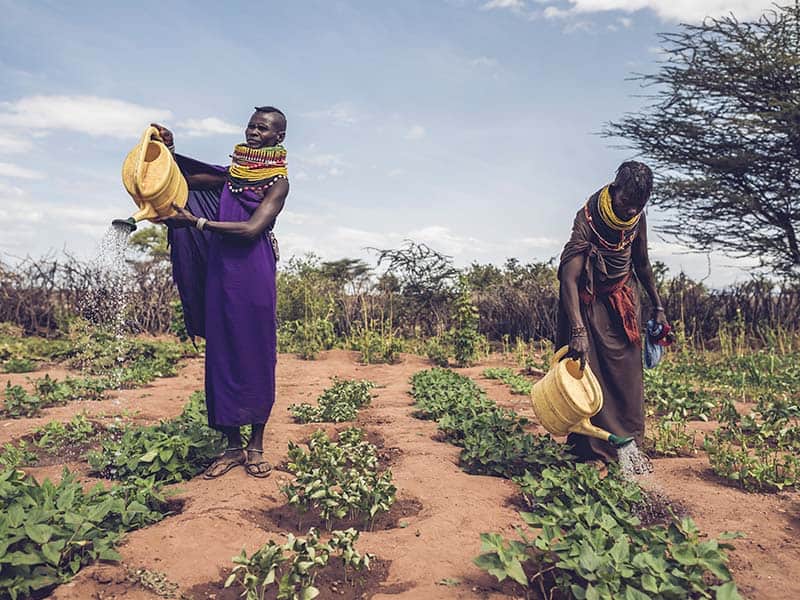
That’s where the whole joy today is. We are not just creating solutions for people to have food to be stronger. We are creating solutions that are wholesome, uprooting the community from poverty, to a place of holistic transformation, where they are able to take charge of their destiny.God loves his people and is infinitely interested in their welfare. That statement is true whether someone is a project coordinator or implementer (like our staff) or a project beneficiary. We are moving together, growing and learning together as we seek to create lasting change in our communities and around the world.
Share your gift this Giving Tuesday by paying it forward on behalf of a friend or family member. When you give today, you’ll receive a digital card to send to your loved one, letting them know about the lasting change their gift is creating.
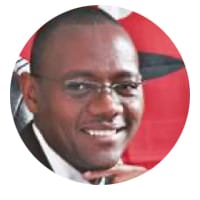
Elias Kamau serves as Country Director at World Relief Kenya. He has over 20 years of experience in humanitarian and development work in various countries including South Sudan, Somalia, Haiti, Kenya and Sudan. He started his career as a schoolteacher rising to the position of Director of External Studies and Continuing Education and successfully trained teachers in and out of Kenya. Exposure to the plight of refugees while serving as an education and training consultant in the sprawling Dadaab Refugee camps in Northern Kenya marked a turning point in his life. He resigned his position with the government feeling called to those vulnerable people. He went on to serve them in some of the poorest parts of the Horn of Africa where he held various positions with reputable International organizations including CARE, Norwegian Church Aid, International AID Services and World Concern among others before joining World Relief. Elias lives in Nairobi with his family including his wife Phelista and two children; a girl and a boy. He enjoys making friends and sharing the love of Jesus.

Oliver Otsimi serves as the Turkana Program Manager at World Relief. He holds a Bachelor’s degree in Environmental Studies (Community Development) and post graduate trainings in Horticultural Crop Production and Post-Harvest Technology, Agribusiness and Marketing. Oliver is studying for a Masters degree in Project Planning and Management at Maseno University. Oliver’s ambition is to positively transform poor households achieve food security and prosperity to enable them live a life of dignity as intended by God. He is married to Pamela and they have two children.
Share the Gift Pt. 1: How One Community in Turkana Is Paying it Forward
Hands Meeting in the Pot
Turkana County, Kenya, is not an easy place to live. Some have even referred to it as the oven of the world. High temperatures hover at an average of 95 degrees Fahrenheit. The air is dry, and rainfall is scarce.
Many residents have lost all their livestock due to persistent drought, and malnutrition is rampant — especially among children whose mothers struggle to produce enough milk to feed them due to their own dietary deficiencies. And yet, a culture of generosity and creativity is giving way to hope and innovation in partnership with World Relief.
Because of the sheer hardness of life in Turkana, community members have developed strong relationships and social capital with one another, depending on each other greatly. You may often hear stories of Turkanans moving to the United States or Australia to work. The money they make is sent home, often supporting several households.
Turkanans even have a saying, which goes, “It is best for your hands to meet in the pot, licking fingers with nothing, than it is for you to have a big meal in front of you to eat all alone.”
This idea of giving to your relatives and neighbors is an ingrained way of life in Turkana. And it is this way of life that has led to a new program called Share the Gift in the Karebur and Kachoba communities.
Introducing the Galla Goat
World Relief began working in Turkana in 2011 in response to a drought-induced food crisis. At the time, one-third of the population suffered from malnutrition. We collaborated with local churches and community members to seek solutions to these issues, and together, we developed robust programming around the issues of food and water security — including introducing a new breed of goats to the region, the Galla goat. Galla goats are a specialized, drought-resistant breed of goats. News outlets like NPR have called them “super goats” because of their ability to withstand high heat.
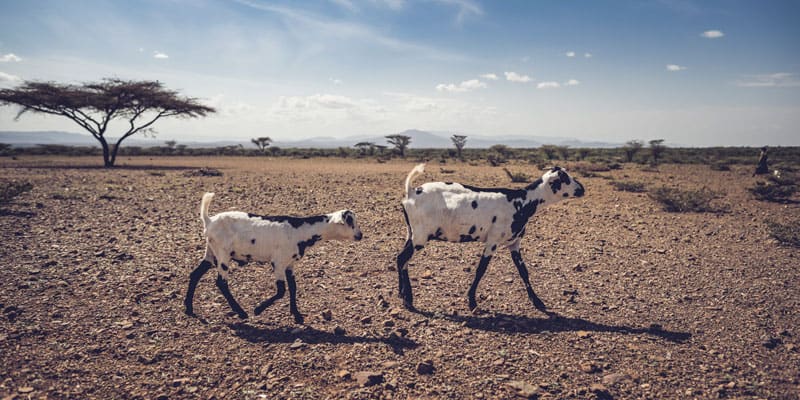
Initially, many Turkanans were skeptical about the new breed. Their goats were red, and the Galla goats were white. These pastoralist men were proud of their livestock and treasured their red goats. Likewise, they feared the white goats would be easier to spot leaving them prone to conflict or theft.
But as they came to see that the Galla goats were superior — they produced more milk, matured faster and fetched higher prices at the markets — they became more willing to give the goats a try.
Sharing the Gift in Karebur
While the Galla goats are, themselves, a gift and a miracle, in 2019 World Relief worked with local churches in the Karebur Village to take things a step further. Together, they designed the first share-the-gift project.
Under the guidelines of this initiative, 20 women were each gifted a Galla goat and each committed to gifting the first female offspring from their goat to another, equally needy person in the community. From there, the chain reaction would begin, until everyone had access to a Galla goat.
Akiru was one of the first 20 women to receive a goat.
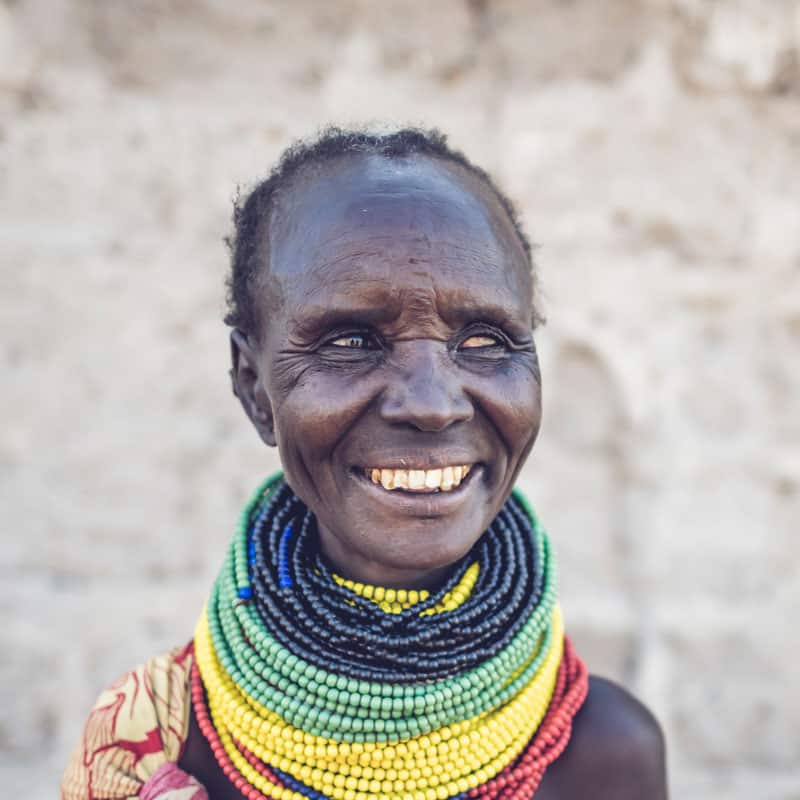
“I love Karebur Community because of the unity and love [we] have for each other… Life has always been a struggle in our community. The drought has always been with us and our goat breeds had been deteriorating as their body sizes had been diminishing and so was their production. The gift of an improved goat was indeed a blessing to us.
I remember during the first lactation the goat produced a lot of milk which was enough for my (own) family’s use and there was surplus milk, which we could share with my neighbor. The gifted goat was such a blessing.”
In early 2021, after the initial 20 goats had produced offspring, the goats’ owners stayed true to their commitment and gifted their first female offspring to others in the community. Women like Anna received the tangible provision of sustenance as well as a renewed sense of connectedness with her friend and neighbor.
“The goat from [my]neighbor has improved our relations for the better. My neighbor now is like a very close relative as a result of the bond of caring resulting from this valuable gift of love,” she said.
The share-the-gift project is just one part of an expansive community development project in Turkana that is made possible when we move together. The local church networks in the area continue to supervise these projects, ensuring that the seed of love first planted by World Relief will saturate the entire community so that every household has the chance to receive and improve their livestock.
You, too, can share the gift this season. Your gift of $60 can make a huge difference in the lives of the most vulnerable around the world, including supplying a goat to a family in Turkana!
Will you give the gift of hope and lasting change this season?

Elias Kamau serves as Country Director at World Relief Kenya. He has over 20 years of experience in humanitarian and development work in various countries including South Sudan, Somalia, Haiti, Kenya and Sudan. He started his career as a schoolteacher rising to the position of Director of External Studies and Continuing Education and successfully trained teachers in and out of Kenya. Exposure to the plight of refugees while serving as an education and training consultant in the sprawling Dadaab Refugee camps in Northern Kenya marked a turning point in his life. He resigned his position with the government feeling called to those vulnerable people. He went on to serve them in some of the poorest parts of the Horn of Africa where he held various positions with reputable International organizations including CARE, Norwegian Church Aid, International AID Services and World Concern among others before joining World Relief. Elias lives in Nairobi with his family including his wife Phelista and two children; a girl and a boy. He enjoys making friends and sharing the love of Jesus.

Oliver Otsimi serves as the Turkana Program Manager at World Relief. He holds a Bachelor’s degree in Environmental Studies (Community Development) and post graduate trainings in Horticultural Crop Production and Post-Harvest Technology, Agribusiness and Marketing. Oliver is studying for a Masters degree in Project Planning and Management at Maseno University. Oliver’s ambition is to positively transform poor households achieve food security and prosperity to enable them live a life of dignity as intended by God. He is married to Pamela and they have two children.
We Move Together
Compounding Crises
In my 14 years of working at World Relief, I have never felt the weight of compounding crises quite like I have this last year.
The same week I stepped into my new role as President and CEO, a 7.2 magnitude earthquake hit Haiti and Kabul fell to the Taliban, putting thousands of Afghan allies and civilians at risk.
Like many of you, I watched heartbroken and angry at the sight of such injustice as women and men chased after U.S. aircraft carriers, desperate to get to safety. And all of this on top of a global pandemic, on top of a global economic crisis, on top of unrest in places like Tigray and Geneina, a food crisis in DR Congo and a multitude of other crises that never make headline news.
We are living through some of the greatest humanitarian crises of our lifetime. It’s a lot to take in, and certainly too much for any one person to hold alone.
And yet, there is hope.
Called to Be the Church
In Acts chapter 17, the Apostle Paul writes that God himself gives life and breath to everyone, that he has marked out the appointed times in history and the very places where each of us exists. In other words, the church — that’s you, and that’s me — was created for such a time as this!
I will never cease to be amazed at the way God can move through his church and his people.
In my time serving as Country Director of World Relief Rwanda, I saw church members from our local Church Empowerment Zones come together in incredible ways to care for those suffering from AIDS, build peace among families who had harmed one another and lift their communities out of economic poverty.
Similarly, over the last few months, churches across the globe have responded greatly to the crises in Haiti and Afghanistan. Many of you have generously reached out with prayers and donations.
Together, we have welcomed and resettled more than 600 Afghan refugees since August. Our staff in the U.S. are currently working their way through 4,128 volunteer applications that have been submitted since August — that’s more volunteer interest in a six-week period than the total number onboarded for the entirety of the fiscal year 2020.
And with the help of 300 local volunteers, our team in Haiti has distributed kits of food and hygiene items to over 4,400 families affected by the August earthquake.
The wave of generosity has been inspiring. It has reminded us that while creating change that lasts isn’t easy, it’s possible when we move together.
Moving Together
How powerful it is to know that you and I were created for such a time as this? And what responsibility does this place on us, I wonder?
Today, the local church in Haiti is leading the way as we help the communities of Les Cayes rebuild. In the U.S., roughly 50,000 Afghans are living at U.S. military bases awaiting their resettlement assignments. Our U.S. office network of staff, churches and volunteers is preparing to receive as many as 7,000.
We have the opportunity to respond together as God’s church — to not be overcome by evil and injustice, but to overcome evil with good (Romans 12:21). Across the globe, men and women just like you are rising up to meet the needs of the most vulnerable among them, and you can join them.
No one of us can carry the world’s burdens on our own. But when we move together, anything is possible. Will you join us?
Move with us this season by signing up for this four-part Advent series delivered right to your inbox. You’ll receive an invite to a virtual gathering plus updates on how to stay involved and make lasting change at home and around the world.
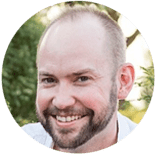
Myal Greene has a deep desire to see churches worldwide equipped, empowered, and engaged in meeting the needs of vulnerable families in their communities. In 2021, he became President and CEO after serving for fourteen years with the organization. While living in Rwanda for eight years, he developed World Relief’s innovative church-based programming model that is currently used in nine countries. He also spent six years in leadership roles within the international programs division. He has previous experience working with the U.S. Government. He holds B.S. in Finance from Lehigh University and an M.A. from Fuller Theological Seminary in Global Leadership. He and his wife Sharon and have three children.
Sharing Hospitality Along The Path
People often reflect on life as a journey. Along the path, we encounter roadblocks, delays and detours — passages that seem a little too narrow and mountains that appear too steep to climb. Over hills and down through valleys, we live one day, one moment, one breath at a time.
When the complicated twists and turns of our own journeys become a lot to manage, it’s hard to see past our own challenges and observe the difficult roads others must travel. But on this path, our faith calls us to move steadily forward — responding with open eyes and tender hearts.
Last month, I joined World Relief as the new Program Lead for The Path community — community made up of compassionate women and men who give monthly to World Relief to bring lasting change to people and communities in need. It is a privilege to walk alongside this community as we bear witness to hope giving way to healing, calamity encountering compassion and suffering colliding with lasting solutions.
I recently watched this devotional from Ann Voskamp and I wanted to share a short clip of it with you today. Ann shares her conviction that the authenticity of our faith is demonstrated in our hospitality and compassion towards those in crisis, and she invited us to walk alongside a world in need. I invite you to listen to Ann’s words and consider how we can take this journey together, showing hospitality and sharing God’s love with each person we encounter along The Path.
Let’s take this journey together. When you join The Path in September, your entire first year of gifts will be matched dollar for dollar up to $100,000! Only a few days remain to unlock this challenge. Will you join us on The Path to lasting change and see your impact doubled today?
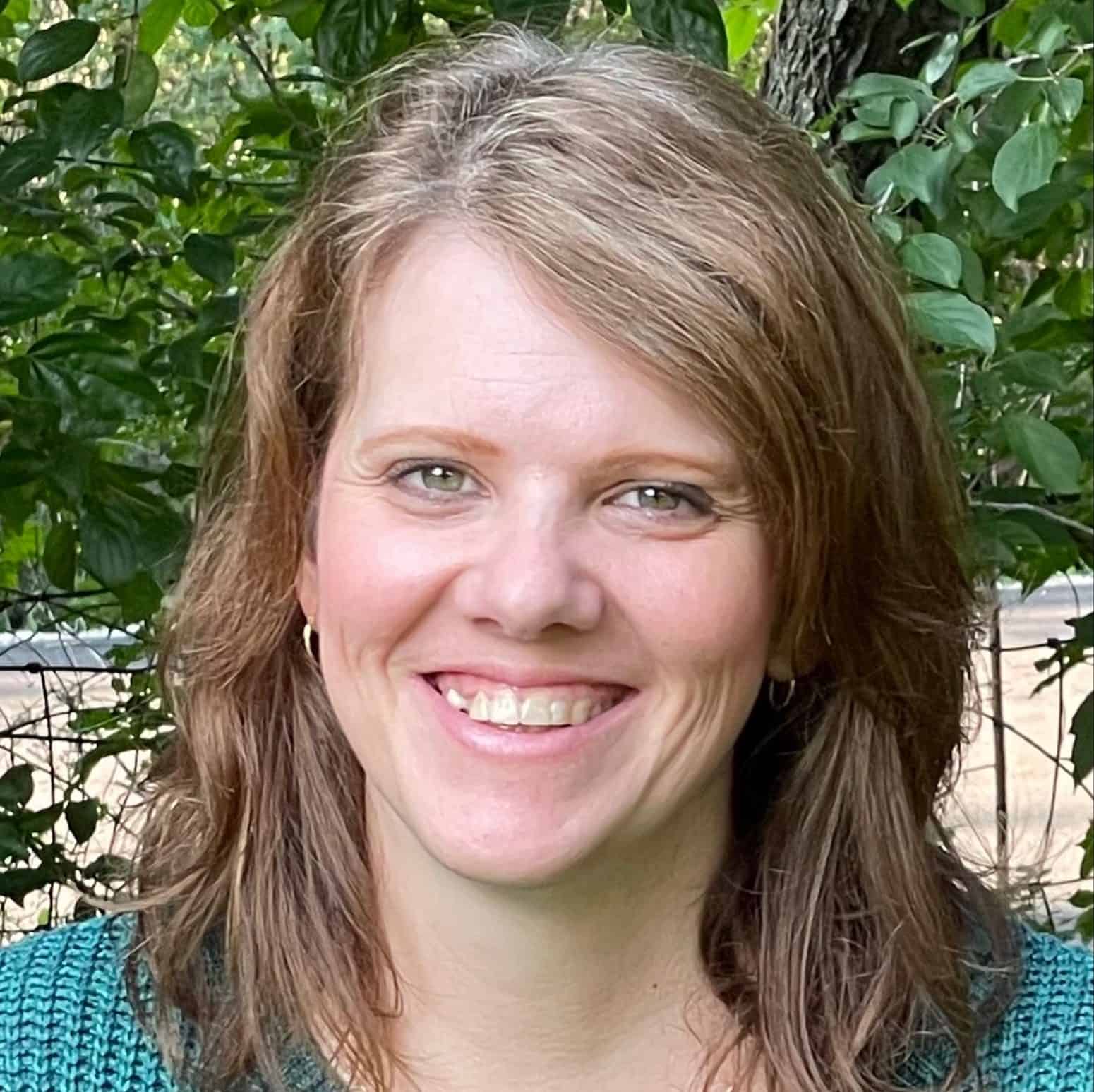
Denise Kersey serves as The Path Lead at World Relief. With a background serving in communication roles for missional organizations, she is passionate about connecting people with opportunities to live out their call to love and serve others.
How Marie Holst is Making Change
As we approach the year-end season, we are giving thanks for everyone who partners with us at World Relief — people like Marie Holst, a member of our Changemakers community.
Marie has been partnering with World Relief for 36 years. Today, she shares why she loves being a member of the World Relief community and why she believes all of us are made for change.
How long have you been partnering with World Relief, and what first prompted you to make a gift?
I have been giving monthly to World Relief since 1984, which if my math skills serve me right, is 36 years. I had graduated from high school, found employment and began making a regular income. When I went off to college, I was looking for an organization worthy of donating a percentage of my income. I was impressed with World Relief because they spread God’s message of hope and love to the world through tangible life-giving means. World Relief does not just come in and preach to people. They clothe, feed and train them to have sustainable lives. Through that love, they can share the good news of Jesus.
By giving to World Relief, I felt that I was supporting the Great Commission when Jesus told his disciples to go and witness to people locally, regionally and to the ends of the earth (Acts 1:8). I am not equipped to go as a missionary to the ends of the earth, but I can support those who do.
When you think about the impact your gifts have had, what are you most proud of?
To be honest, I’m most proud of how my gifts have had an impact on my own family. When I married my husband, Dave, I shared with him my views on giving. God loves a cheerful giver and blesses those who are faithful to Him in their charity (2 Corinthians 9:7). Now, with two children, we are able to be role models for them. Opening up our grip on finances and giving to God from the top of our income has an amazing way of freeing us from the unpleasantness of greed and worry. Our family is truly blessed in our attitudes regarding money.
Having said that, I am truly appreciative of World Relief and its efforts to change the world. I would not have continued giving to them for 36 years if they were not having a tangible impact all around the world today.
Why should someone consider partnering with World Relief today?
The world today is in such need. With natural disasters, poverty, famine, disease and war, the world needs relief and the good news of Jesus more than ever. World Relief takes a restorative approach to these issues, providing emergency resources when needed, but also taking long-term action to assist people to restore their lives. If you give a man a fish, he will be fed for a day. If you teach a man to fish, he will be fed for a lifetime. World Relief understands this and is in the business of teaching people how to build sustainable lives and supporting them with the resources they need to do it.
How have you seen faith or the Church change hearts in your community?
I can’t deny the most obvious is the Church’s response to the COVID-19 crisis. Across the board, I have seen fellow Christians stepping up to offer the hope that Jesus brings. Churches of all denominations have changed swiftly to be able to minister to people despite quarantines and social distancing. Many churches have implemented online services that will continue to reach people at home. I see God moving in this crisis to change His people, bring flexibility and expand the circle of people that He can reach.
There are a lot of people stepping up to support local organizations, such as food pantries. People are also jumping in and helping those in need, who may have lost their jobs due to COVID. I am amazed at how God’s people are stepping up to meet needs in these crazy times.
What does the phrase “we are made for change” mean to you?
I hear there are people who are invigorated by change. I personally prefer stability, things that are known and comfortable. However, I cannot stand injustice, poverty, hunger, hurting or lostness. These things break God’s heart, and so they break mine. If we are not the hands and feet of Christ on this earth, then who will be? The Church is the body of Christ. We are made to change the world for the better.
Is there anything else you’d like to share with our readers?
I just want you to know that World Relief did not prompt me or pay me to write any of this. I’m just an average person with an average life in the American Midwest and sharing my heart with you.
God is good. If He is calling you, take a step of faith. He will count your faith as righteousness (Romans 4:3, 5&9, Galatians 3:6 , James 2:22-24). Trust Him.
Join Marie and thousands of others like her in creating change that lasts by giving to World Relief. Your gift today ensures a better tomorrow for millions of people in the U.S. and across the globe.
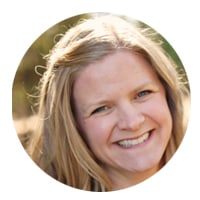
Karyn Bryant has worked with donors and philanthropists to put love into action for causes they feel passionate about. She joined World Relief’s strategic partnership team in January 2020. When not working, you might find her cooking, floating on a river or spending time with her husband and two young children where they reside just outside Sacramento, California.
Made for Change
Change isn’t easy.
I can’t even begin to count how many times we’ve said that phrase over the last eight months at World Relief. When I think back to March, when our offices across the globe began closing their doors due to shelter-in-place orders, it feels like another lifetime entirely.
Like many of you, we felt the blow of loss and the weight of uncertainty as the virus made its way around the globe. We prayed, we grieved, we sought reason to hope, and together, we leaned in to ask God what he might have for us in the midst of all the disruption.
Just when we thought we might be able to adjust to these new pandemic realities, the tragic murders of Ahmaud Arbery, Breonna Taylor and George Floyd made national headlines. Calls for justice and reform swept across our nation in ways we haven’t experienced in many years. Faced with these current realities, I found myself evaluating my own blindspots in the fight for racial justice, lamenting the health of our nation and the division that continues today.
2020 has indeed ushered us into new levels of difficulty and uncertainty.
When we consider the enormity of these disruptions, the weight and even powerlessness found in this chaotic year, it can be difficult to access the spiritual energy we need to be a positive agent for change.
Many of us want to be part of the change, but are so drained we cannot carry it out. In the midst of this weariness and confusion, we may be tempted to turn away, to throw up our hands and say, “There’s just no use! Nothing I do will matter anyway.”
Others of us may be tempted to rush back to what feels normal — to prematurely begin putting our lives back together so things can get on just the way they were. But might there be another way?
Perhaps true peace and true change comes not in avoiding the weight of disruption or scrambling back to an old sense of normal, but in accessing the divine resources God has for us once our human store has run out.
King David spoke to this often in the Psalms as he cried out to God for renewal. David — a man familiar with life’s rapid and sometimes painful changes — did not shy away from his discomfort. Instead, he faced it, bringing it honestly to God.
In the opening verses of Psalm 69, David wrote:
“Save me, O God,
for the waters have come up to my neck.
I sink in the miry depths,
where there is no foothold.
I have come into the deep waters;
the floods engulf me.
I am worn out calling for help;
my throat is parched.
My eyes fail,
looking for my God.”
He continues in verse 16:
“Answer me, Lord, out of the goodness of your love;
in your great mercy turn to me.
Do not hide your face from your servant;
answer me quickly, for I am in trouble.
Come near and rescue me;
deliver me because of my foes.”
Like David, we are invited to cry out to God in this same way, laying our fear, our confusion, our anger and even our own shortcomings at his feet. It is only when we are able to name all that we carry and fully surrender it to God, that we are able to move through change, grieve our losses and make something new on the other side.
At World Relief, we recognize the gravity of this year’s change and understand that the months ahead contain challenge and uncertainty of their own, and we are also convinced that God has something good for us in the midst of change.
In fact, when we are able to tap into the divine strength found in God, we may even find that we were made for change. We were made for growth. We were made for renewal. And we were made to bring that redemption to a broken, hurting world.
With this in mind, our team has worked diligently to create a resource to help you reflect and move through the immense amounts of change we’ve experienced. It’s called Monday Meditations.
Starting on October 19th, this six-part audio series will be delivered to your inbox bi-weekly.
I hope you’ll join us in this series as we use scripture to reflect on and embrace change, discovering what it means for each of us to lean in, look forward and reimagine a hopeful future together.
Already signed up? Text this link to a friend and invite them to join you.

Scott Arbeiter is a former pastor of Elmbrook Church in Brookfield, Wisconsin, and the president of World Relief, which is a subsidiary of the National Association of Evangelicals.
The Path to Lasting Change
Change isn’t easy, and it isn’t fast. Change shows up day after day, month after month, year after year. The path to change requires faithfulness, consistency and a commitment to going the distance — no matter how far or how long it takes.
I remember the day our team pulled up to the abandoned factory on the western shore of Lake Turkana. Eight hours of driving off-road through rock, sand and empty riverbeds had left our team sore and tired, yet the sight of the looming, disheveled building was enough to shake us from our weariness.
Following the Sahelian drought of the mid-1980s, massive famine devastated the Turkana region. As is so often the case with large-scale global disasters, the initial compassion surge propelled aid rapidly into the region. International organizations set up food distributions, medical teams flew in to staff temporary feeding clinics and the Turkana people were once again shown that when things get just bad enough, Western forces will undoubtedly swoop in to save the day.
Now, blocking the blistering rays of the afternoon sun from our faces, stood one of these examples. Twenty years and 150 million U.S. dollars later, a fishery had been completed for the people of Turkana. Its promise? To prevent the people of the region from ever facing starvation again. The reality? A tragic landmark of good intentions gone wrong. The people of Turkana, you see, do not eat fish.
In 2010, African economist Dambisa Moyo wrote in her book, Dead Aid, “Africa is addicted to aid. For the past sixty years, it has been fed aid. Like any addict it needs and depends on its regular fix, finding it hard, if not impossible, to contemplate existence in an aid-less world. In Africa, the West has found its perfect client to deal to.”
These words, though difficult to hear, echo all too true for many development practitioners who frequently hear petitions for food and money when first entering new communities. The fishery in Turkana is a tangible manifestation of Moyo’s claim. It seems that every year we hear horror stories of time and money poured into well-meaning aid interventions that fail to solve the problems they intended to, create damaging patterns of dependency or, worst of all, create bigger problems for their intended beneficiaries.
These well-intentioned interventions can leave those of us that long to see lasting change take root feeling overwhelmed, perplexed and even defeated. Is there a solution? Is it possible to help without creating dependencies? Is there truly a way to bring flourishing to communities across the globe?
While stories like this one from Turkana are tragic, they’ve taught us important lessons.
In fact, they are a central part of how World Relief has developed our model of relief and development because they’ve helped us understand that lasting change comes not with quick fixes or band-aid solutions, but through a deep understanding of the unique beliefs, cultural traditions, resources and needs of the communities in which we work.
It means that in places like northern Turkana, we understand that this nomadic, pastoralist community survives on a diet of meat, milk, and blood, and that asking them to eat fish – a species they believe are directly related to snakes and associate with danger – is not a quick fix, even in cases of famine.
When seeking to fight against famine in the region, we worked closely with local churches and leaders to brainstorm creative solutions to combating malnutrition amongst the Turkana population. Today, we run a robust agricultural program in the region that helps expand and diversify the Turkana diet beyond traditional food sources, as well as teach desert farming techniques to help conserve water. We’re also breeding drought-resistant goats that can survive for longer periods of time without water when drought strikes, providing a prolonged food source for the people of Turkana.
Grassroots interventions like the ones in Turkana not only honor local knowledge, culture and community resources, but they also pave the way to break the cycle of Western aid that disempowers so many communities in the developing world.
It’s also precisely why, when we first enter communities, we begin by bringing local churches together to discuss the ways in which they can work together to solve their own problems. In fact, local pastors, community leaders and a global network of over 95,000 local volunteers are responsible for the implementation of our programs around the world. Our international staff, 95% of whom are local to the communities in which they work, have an inside voice and understanding that no outside organization can bring. What’s more, they will remain in their communities long after we depart — creating, leading and sustaining community efforts toward change.
Over the last six months, it has become apparent that the quick fixes and bandaid solutions our nation and our world have often gravitated toward are no longer working. The COVID-19 pandemic coupled with continued systemic racial injustices in the U.S. have shed light on the truth that problems must be faced at the root and lasting solutions cannot be rushed. It takes time, attention and intention to forge the path to lasting change, no matter what issue you’re trying to address.
At World Relief, we’re embracing this approach as we tackle some of the world’s biggest problems — disasters, extreme poverty, violence, oppression and mass displacement. We are devoted to addressing the root causes of these issues with locally-driven, sustainable solutions that ensure transformation remains long after World Relief is gone. Yes, this approach takes time. Yes, it is difficult to measure. Yes, in our culture of immediate gratification, it is hard. But we know this approach works. And we want you to join us in it.
Will you join us as we forge the path to lasting change?
Co-Authoring God’s Story
Our world is full of stories. From ancient hieroglyphics to the stories in the Bible, to cultural fables and modern fiction — stories create understanding and give meaning to our world. They captivate and compel the human brain like nothing else can. They affect how we think, how we behave and how we respond to the world around us. Stories can empower and encourage us or take away our hope and our dignity. They can compel us to reach out in compassion or turn inwards and hide behind walls. In the words of Robert McKee, stories “are the currency of human contact.”
It’s no wonder, then, that when people ask me about the World Relief story, I get excited because ours is a story of God at work. It’s a story of solidarity with the suffering, the oppressed and the marginalized. Of people saying ‘yes’ to God’s call and co-authoring his story of hope and transformation. Of a small ministry birthed in Park Street Church in Boston in 1944 that has grown to touch more than five million lives every year and has responded to disasters, extreme poverty, violence and oppression in more than 100 countries since it began.
For over 75 years, World Relief has sought to discern the movement of God and respond to it. Our identity and character of today have been molded by the recognition of our dependence upon God and in our belief that we, as believers, get to be co-authors in the story God is writing today. Throughout our history, we have been formed by the countless stories of individuals who have followed God’s call and allowed him to use their lives and experiences to shape who we are and what we do.
Take Debbie, a young American nurse who was working in a mission hospital in Ghinda, Ethiopia, in 1974 when rebels armed with machine guns and grenades burst into the hospital where she was working. She and another missionary nurse named Anna were abducted and forced to run across the mountains of Northern Ethiopia in 104-degree heat. When Anna couldn’t keep up, the rebels shot and killed her while Debbie looked on in horror. Debbie, who was pregnant at the time, was held in captivity for 26 agonizing days. Most of us, I think, would have turned our backs on Africa after such an ordeal. But not Debbie. She and her husband later settled in Nairobi, where she joined World Relief and found herself responding to the HIV/AIDS crisis that was beginning to engulf the continent.
Years later, Emmanuel, a humble, soft-spoken man of deep faith felt called to Rwanda and became one of our first staff members in the country. It was 1994, and the genocide had just ended. Christians around the world were grappling with the horrific reality that the church was complicit in many of the atrocities that stunned the world. I first met Emmanuel a few years ago and asked him what it was like when he first arrived in Kigali.
“There weren’t many people then,” he told me. “Just lots of bodies by the roadside, and dogs. Lots of wild starving dogs, feeding off the corpses.”
Nearly twenty-five years later, Emmanuel’s selfless, compassionate love and quiet, spirit-filled wisdom in those early years has built a reservoir of trust with local communities and churches that has paved the way for our work to flourish. The respect he commands within local communities, and his powerful ministry of presence has opened the doors to hundreds of churches and homes, allowing our staff to come alongside families and communities in transformative ways.
Meanwhile, a South African man named Dr. Pieter was working at World Relief in Mozambique, pondering the question, “how can we address high levels of child mortality in very poor remote communities that don’t have access to healthcare or clinics?” He piloted an innovative program to reach women and communities with education that encouraged healthy behaviors, ultimately resulting in the creation of our Care Group model. At the time, this use of peer group instruction was a complete paradigm shift in development work.
Of course, the stories that make up our organization don’t just belong to our staff. Thousands of them come from the small stirrings and big leaps of faith of men and women like you. People like Jonathan, a software engineer from Massachusetts who identifies strongly with his Jewish family history. His father was on the last Red Cross train out of Germany during WWII, and his grandparents both perished in Auschwitz. Today, Jonathan gives faithfully to World Relief to fight back against the violence and oppression that so many, like his father and grandparents before him, experience on a daily basis, and to support them on their journey as refugees to find safety.
As I reflect upon these different stories of faithful commitment, I am struck by the fact that no amount of central planning, no government organization or think-tank could ever have assembled the people and the pieces that have contributed to the World Relief story, and make our approach to development and sustainable solutions so distinctive today.
These separate strands of commitment, curiosity and discovery were the yeast that gave rise to our theory of change and our model of church empowerment. Years later, our staff codified and professionalized these learnings, as we came to understand the uniquely powerful role the local church could play in poor – and especially remote – communities. We recognized the importance of trust and relationship building, and of allowing communities to take ownership of their own destinies rather than depending on outside interventions.
Our theory of change did not emerge in a classroom or research laboratory, but on the margins, “in the dust of the communities and the heat of the huts, where we recognized the storehouses of [preexisting] wisdom,” as Debbie puts it. Only the hand of God, the movement of his spirit and the faithful obedience of people like Emmanuel, Debbie, Dr. Pieter and Jonathan could write such a beautiful and unexpected story.
Today, these experiences and more have led to the adoption of our Care Group model by more than 25 different NGOs in over 28 countries with beneficiaries now numbering in the millions. Similarly, our innovative Savings Group model and our grassroots Village Peacekeeping Committees are creating incomes, building independence and preventing the outbreak and spread of violence in places like Congo and South Sudan.
At World Relief, our fluid approach to the changing world reflects what New Testament scholar, N.T. Wright, has described as “obedient improvisation” – faithful to scriptural authority and tradition, but alive to our time, open to new learning and discoveries and constantly seeking out what story God might be writing on the margins and responding to it.
I thank God that World Relief has brought help and hope to over five million vulnerable people around the world this last year. But what amazes me most, and what I am most grateful for, is the commitment of the 1,500 staff, 6,000 churches and 95,000 volunteers who have joined us as co-authors in this story. I thank God for the thousands of you who make this work possible by choosing to engage, pray for and give to this work. Your commitment, courage and faith is an inspiration to us every day. Thank you for co-authoring this story of restoration and hope that God has so graciously entrusted us with.

Tim Breene served on the World Relief Board from 2010 to 2015 before assuming the role of CEO from 2016-2020. Tim’s business career has spanned nearly 40 years with organizations like McKinsey, and Accenture where he was the Corporate Development Officer and Founder and Chief Executive of Accenture Interactive. Tim is the co-author of Jumping the S-Curve, published by Harvard Publishing. Tim and his wife Michele, a longtime supporter of World Relief, have a wealth of experience working with Christian leaders in the United States and around the world.
A Season of Lasting Change
On Christmas Eve, we celebrate and anticipate the birth of Jesus.
A thousand years before Christ was born, the Israelite elders approached the prophet Samuel and asked him to appoint them a king. They saw a king as the solution to all of their problems as a nation.
But God knew a king wouldn’t solve the deeply entrenched and longstanding issues their nation was facing. Poverty, violence and oppression — these things and more plagued Israel, just as they plague our world today. God knew that if he was going to bring real and lasting change, he’d need to do something radical, something unexpected, something that would uproot the sin that caused so much suffering and grow into a global movement.
That something was Jesus.
This Christmas, we’ve been celebrating the lasting change God brought to us through Jesus. He weeds out and redeems the sin in our own lives and invites us to join him in creating lasting change in the lives of others.
Those of you who have been journeying with us through our Christmas Devotional know that change that lasts often starts small, but it rarely stays that way. Change that lasts takes time. It grows deep roots, then spreads to impact others. Jesus understood this far better than the rest of us, and this holiday season, we celebrate him as Immanuel, God with us.
If you haven’t yet, we invite you to join us in our study of lasting change throughout scripture. Download the Change That Lasts Christmas Devotional and invite God to show you what lasting change he wants to do in and through you.
Merry Christmas!

Rachel Clair serves as a Content Writer at World Relief. With a background in creative writing and children’s ministry, she is passionate about helping people of all ages think creatively and love God with their hearts, souls and minds.











